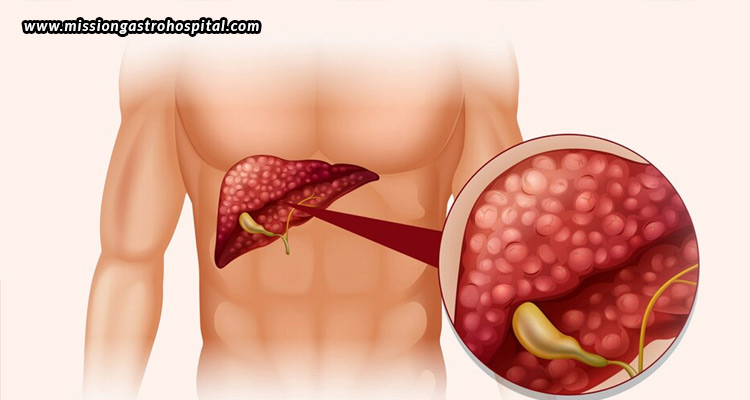The liver is an essential organ in the human body, playing a crucial role in detoxifying substances, producing bile, regulating metabolic processes, and facilitating digestion. To evaluate its health, healthcare professionals utilize Liver Function Tests (LFTs), which consist of a series of blood analyses that assess various enzymes, proteins, and compounds generated by the liver. These tests are instrumental in diagnosing liver disorders, tracking the effectiveness of treatments, and identifying liver damage at an early stage. This blog will delve into the various types of liver function tests, their importance, and the insights they provide regarding your overall health.
Understanding Liver Function Tests (LFTs)
Liver function tests are blood analyses designed to assess the operational efficiency of the liver. They quantify different enzymes, proteins, and substances that may indicate liver inflammation, injury, or dysfunction. Physicians may suggest LFTs if you present symptoms such as jaundice (a yellowing of the skin or eyes), unexplained fatigue, abdominal discomfort, or dark urine. Additionally, these tests are employed to monitor chronic liver conditions, including hepatitis, fatty liver disease, and cirrhosis.
Key Liver Function Tests and their significance
Alanine Aminotransferase (ALT)
ALT is an enzyme whose levels are measured to assess liver cell damage. Elevated ALT levels may indicate liver injury due to conditions such as hepatitis, fatty liver disease, or excessive alcohol consumption. Continuous high levels could suggest the presence of chronic liver disease.
Aspartate Aminotransferase (AST)
AST is an enzyme found in both liver and muscle tissues. While increased AST levels can point to liver disease, it is not as specific to liver conditions as ALT. A high AST/ALT ratio may indicate alcoholic liver disease or cirrhosis.
Alkaline Phosphatase (ALP)
ALP measures an enzyme associated with liver and bile duct function. Elevated ALP levels may indicate issues such as bile duct obstruction, gallstones, liver damage, or bone disorders, whereas low ALP levels could suggest malnutrition or genetic conditions.
Total and Direct Bilirubin
Bilirubin levels are assessed to evaluate the breakdown of red blood cells. High bilirubin levels can lead to jaundice and may indicate liver disease, bile duct obstruction, or haemolysis. An increase in direct bilirubin suggests problems with the bile duct, while elevated indirect bilirubin may point to blood-related disorders.
Albumin and Total Protein
These tests evaluate the liver’s capacity to synthesize proteins. Low levels of albumin may indicate chronic liver disease, malnutrition, or kidney problems, while a decrease in total protein could signify impaired liver function.
Gamma-Glutamyl Transferase (GGT)
GGT is utilized to identify bile duct disorders and liver damage related to alcohol consumption. Elevated GGT levels may indicate bile duct obstruction, fatty liver disease, or chronic alcohol use.
Prothrombin Time (PT/INR)
PT/INR assesses the blood’s clotting ability, which is regulated by the liver. A prolonged PT/INR may indicate liver dysfunction or a deficiency in vitamin K, while a significant increase could signal advanced liver disease or cirrhosis.
Interpreting liver function test results
If your liver test results are abnormal, your doctor may may suggest additional testing to identify the underlying cause. Possible explanations for abnormal liver function test (LFT) results include liver infections such as hepatitis A, B, or C; non-alcoholic fatty liver disease (NAFLD/NASH); alcohol-related liver disease; obstructions in the bile ducts due to gallstones or tumours; cirrhosis or liver fibrosis; and liver cancer or tumours. To arrive at an accurate diagnosis, your physician will evaluate the test results in conjunction with your symptoms, medical history, and any further imaging studies such as ultrasound or MRI.
When should you get a Liver Function Test?
Healthcare providers may recommend LFTs under the following situations –
- If you experience ongoing fatigue, jaundice, or unexplained weight loss
- If you regularly consume excessive amounts of alcohol
- If there is a family history of liver disease
- If you have metabolic disorders such as diabetes or high cholesterol
- If you are taking long-term medications that could impact liver function
Routine liver function tests are instrumental in identifying early signs of liver damage, facilitating timely intervention and treatment.
Liver function tests serve as an essential diagnostic tool for evaluating liver health and recognizing early indicators of disease. By comprehending what these tests assess and the implications of abnormal results, individuals can take proactive measures for liver health. Should you notice symptoms of liver dysfunction or possess risk factors for liver disease, it is advisable to consult a specialist doctor for appropriate testing and early intervention. For specialized liver diagnostics and expert care, Mission Gastro liver hospital in Ahmedabad provides advanced testing and comprehensive treatment strategies to effectively manage liver conditions. The team of specialists here offers personalized care, ensuring prompt diagnosis and treatment. Equipped with state-of-the-art facilities and cutting-edge technology, the hospital is committed to enhancing liver health and improving patient outcomes.








